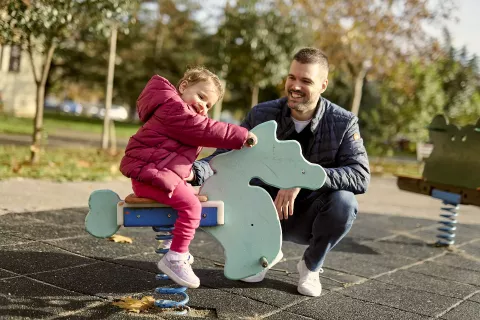Report
How can the family support the development of socio-emotional skills?
Handbook for parents and guardians

- Available in:
- Crnogorski
- English
Highlights
Dear parents, guardians and foster carers, we have prepared this handbook with a desire to help you learn:
- what social and emotional skills include;
- why such skills are important for children in terms of their healthy development, school achievements, their lives and careers;
- how you can nurture the core social and emotional skills in your children; and
- how the school fosters the development of these skills.
Important things to remember at the outset
- Children are not born with skills, values and virtues. These are all important parts of the child’s identity and personality, making each child unique, recognizable and distinct from others. The common feature of all these skills is that they are learned, practised and developed, first within the family, then at school.
- Parents and teachers are the closest and most important role models for children when they start to learn and embrace values, to acquire the skills to live and work with others, to be happy, to be good people, to have fulfilling lives and careers, and to contribute to society.
- Without a consistent system of values and developed social and emotional skills, children cannot develop attitudes and behaviours which are called prosocial, socially desirable and helpful, both for the children themselves and for the others around them.
- For all of us, values are landmarks guiding us towards what to appreciate, what to see as valuable, how to behave towards and treat ourselves and others, how to learn and work.
- For children and young people to successfully acquire skills, values and virtues, the family and school need to be mutually reinforcing – to cooperate and consistently share the same values. We believe you have faced dilemmas many times about whether you are properly nurturing your child’s personality for the very reason that you notice diverse and conflicting or contradictory influences that peers, the school, the media and social networks are having on the child.
- Once the family and school start cooperating on this level, children and young people will have a much easier time embracing values, and will have a clear idea of what is good and what is bad, those behaviours that are desirable and those that are not. They will feel much safer, with a sense of belonging to both the school and the family, that they are accepted, that all children have the same rights and are treated the same.
- Without the support of parents, teachers can have only a limited impact on the development of social and emotional skills and values in children and young people. Children stand to gain the most when the school teaches them the same values and skills that they are supposed to acquire at home!

Publication date
Languages
Montenegrin
ISBN
978-9940-582-13-5




